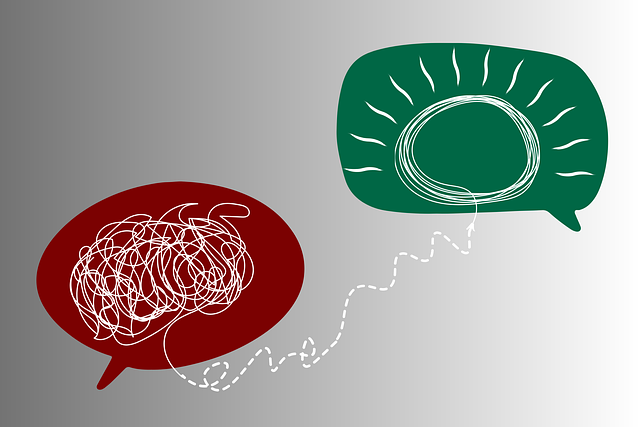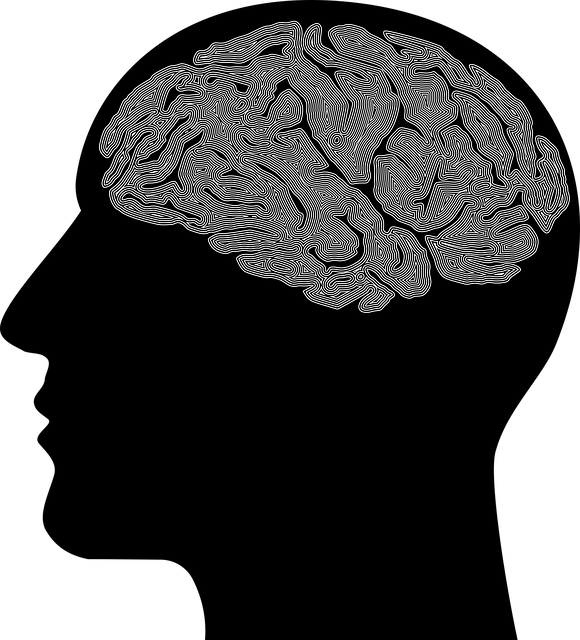Mastering Mindfulness: A Guide to Boulder ACT Meditation Practice
Mindfulness meditation, a core component of Boulder Acceptance and Commitment Therapy (ACT), promote…….
In the rapidly evolving landscape of mental health care, Boulder Acceptance and Commitment Therapy (ACT) has emerged as a powerful and transformative approach, offering new hope for individuals seeking to lead more fulfilling lives. This innovative therapy combines principles from behavioral science with a deep understanding of human psychology, focusing on acceptance, mindfulness, and personal commitment to create lasting positive change. In this article, we embark on an in-depth exploration of Boulder ACT, its impact, and its role in shaping the future of mental wellness globally.
Definition and Core Principles:
Boulder ACT is a form of behavioral therapy that encourages individuals to embrace their thoughts and emotions without judgment, while cultivating a strong connection between their values and actions. Its core components include:
Acceptance: Embracing experiences, including difficult emotions and thoughts, without striving to change them. This acceptance serves as a foundation for personal growth.
Mindfulness: Paying attention to the present moment with openness and curiosity, allowing individuals to observe their thoughts and feelings without attachment or judgment.
Commitment: Engaging in valued actions that align with one’s authentic self. This involves setting goals and taking meaningful steps towards achieving them, despite obstacles.
Historical Context:
ACT traces its roots back to the 1980s when Steven Hayes and his colleagues began developing this approach at the University of Nevada, Reno. The therapy was initially designed to address issues such as anxiety disorders and depression but has since evolved to become a widely recognized and effective treatment for a range of mental health conditions. The term “Boulder” refers to the city where the therapy’s founding principles were refined and popularized, adding a unique geographical identity to this therapeutic approach.
Significance:
Boulder ACT stands out due to its emphasis on accepting one’s inner experiences rather than trying to suppress or control them. This shift in perspective empowers individuals to make meaningful changes in their lives by aligning their actions with their core values. The therapy has gained popularity for its flexibility, adaptability to diverse populations, and proven effectiveness in clinical settings.
International Reach:
Boulder ACT has transcended geographical boundaries, gaining recognition and adoption worldwide. Its influence is evident across various regions, each adapting the therapy to suit local cultural and linguistic contexts. For instance, the European Union has seen a rise in ACT-based interventions, with many countries integrating it into their national healthcare systems. Similarly, in Asia, countries like Japan and South Korea have incorporated Boulder ACT into their psychological services, demonstrating its global appeal.
Trends Shaping Its Trajectory:
Cultural Adaptation: Researchers and practitioners are increasingly translating and localizing ACT for different cultural contexts, ensuring its effectiveness across diverse populations.
Digital Integration: The digital age has enabled the delivery of ACT through online platforms and mobile apps, making therapy more accessible and convenient for many individuals. This trend is particularly prominent in regions with limited mental health resources.
Comprehensive Training Programs: To ensure quality and consistency, numerous professional organizations offer specialized training programs for healthcare providers interested in learning Boulder ACT. These programs foster a global community of practitioners committed to the therapy’s principles.
Regional Affects:
North America: The United States and Canada have been at the forefront of ACT research and practice, with many leading experts contributing to its development. Here, ACT is widely used in both clinical and educational settings.
Europe: As mentioned, several European countries have integrated ACT into their healthcare systems, often focusing on improving access to mental health services.
Asia: In Asia, the therapy’s emphasis on mindfulness and acceptance resonates with cultural values, leading to its integration into traditional healing practices.
Market Dynamics:
The global mental health care market, valued at USD 467.3 billion in 2021, presents a lucrative opportunity for Boulder ACT. The therapy’s cost-effectiveness and evidence-based approach make it an attractive option for healthcare providers and insurance companies. As the demand for accessible and efficient treatment options grows, ACT is poised to play a significant role in shaping the market.
Investment Patterns:
Private equity firms and venture capital investors have shown interest in mental health startups, many of which are focused on delivering ACT-based interventions digitally. This trend reflects the potential for disruptive innovation in the sector. Additionally, government investments in mental health infrastructure often include funding for evidence-based therapies like ACT, ensuring its sustainability and widespread availability.
Economic Impact:
Boulder ACT’s economic implications are multifaceted:
Cost Savings: By promoting self-management and reducing reliance on frequent clinical visits, ACT can lead to significant cost savings for both individuals and healthcare systems.
Productivity Gains: Improved mental well-being resulting from ACT can enhance productivity in the workplace, benefiting both employees and employers.
Reduced Stigma: Actively engaging with mental health through therapies like ACT contributes to reducing the stigma associated with seeking professional help.
Digital Platforms and Apps:
The digital revolution has revolutionized access to mental health care, and Boulder ACT has not been left behind. Various mobile applications and online platforms deliver ACT techniques, guided meditations, and cognitive exercises, allowing individuals to engage in self-guided therapy or supplement traditional treatment. These tools are particularly valuable for:
Remote Access: Individuals in remote areas or those with limited mobility can access ACT interventions from the comfort of their homes.
Convenience: Busy individuals can utilize these platforms during short breaks, making mental well-being maintenance more manageable.
Virtual Reality (VR) and Augmented Reality (AR):
Emerging technologies like VR and AR have potential applications in ACT. Immersive virtual environments can create safe spaces for exposure therapy, helping individuals confront fears or trauma in a controlled setting. AR, on the other hand, can overlay guiding prompts and reminders to support mindfulness practices in everyday life.
Artificial Intelligence (AI):
AI-powered chatbots and virtual therapists based on ACT principles are being developed to provide personalized support. These systems use natural language processing to engage users in conversations that promote self-reflection and behavioral change. While AI assistance should complement, not replace, human therapy, it offers exciting possibilities for expanding access to ACT.
Key Policies and Frameworks:
The development and implementation of Boulder ACT are guided by various policies and regulations that ensure ethical practices and consumer protection:
Healthcare Regulations: National healthcare policies dictate the coverage and reimbursement of mental health services, including ACT. These policies vary across countries, influencing the accessibility and affordability of therapy.
Data Privacy Laws: Given the sensitive nature of client information in therapy, data privacy laws like GDPR (General Data Protection Regulation) in Europe play a crucial role in protecting individuals’ rights and ensuring responsible data handling.
Professional Licensing: Mental health professionals delivering ACT must adhere to strict licensing requirements, ensuring they possess the necessary education, training, and experience.
Influence on Development:
These policies and regulations shape the following aspects of Boulder ACT:
Training and Certification: Professional organizations often collaborate with regulatory bodies to establish standards for ACT training and certification, ensuring qualified practitioners.
Ethical Guidelines: Policies promote ethical practices in ACT, including client consent, confidentiality, and cultural sensitivity.
Research and Funding: Government funding agencies and private foundations influence research directions, encouraging studies that demonstrate the therapy’s effectiveness and refine its application.
Main Challenges:
Stigma and Misunderstanding: Despite its evidence-based approach, ACT sometimes faces resistance due to misconceptions about its focus on acceptance. Some individuals may interpret this as promoting passivity, which is not the case.
Cultural Adaptation: Translating ACT into different cultural contexts requires careful consideration to maintain its core principles while respecting local beliefs and practices.
Resource Allocation: Ensuring equitable access to ACT can be challenging in regions with limited mental health resources, particularly when competing with other healthcare priorities.
Criticisms and Solutions:
Criticism: Some critics argue that ACT’s focus on acceptance may hinder clients from addressing underlying issues or unhelpful behaviors.
Solution: Practitioners should emphasize that acceptance does not mean approval or passivity but rather a willingness to experience thoughts and feelings without judgment, which paves the way for meaningful change.
Challenge: Integrating ACT into existing healthcare systems requires coordination and collaboration between mental health professionals, insurance providers, and policymakers.
Strategy: Establishing clear guidelines, providing training, and fostering multidisciplinary partnerships can facilitate successful integration.
Case Study 1: Depression in Young Adults
Setting: A university campus in the United States.
Problem: High rates of depression among college students, with many struggling to access affordable therapy.
Solution: A collaborative effort between the university’s student health center and local mental health clinics implemented a digital ACT program tailored for young adults. The program included online therapy sessions, guided meditations, and peer support groups.
Outcome: Within six months, participants reported significant reductions in depressive symptoms, improved life satisfaction, and increased engagement in meaningful activities. The program’s success led to its expansion, offering long-term benefits to a larger student population.
Case Study 2: Anxiety Disorders in the Workplace
Context: A multinational corporation with employees worldwide.
Challenge: High levels of workplace stress leading to anxiety disorders among staff, impacting productivity and job satisfaction.
Approach: The company’s HR department partnered with ACT-trained psychologists to develop a customized program. This involved group sessions focusing on mindfulness, coping strategies, and values clarification, followed by individual coaching.
Results: Participants experienced reduced anxiety symptoms, improved work performance, and increased job engagement. The program’s success led the company to integrate ACT workshops into their employee wellness initiatives.
Emerging Trends:
Integration with Telemedicine: As telemedicine continues to grow, Boulder ACT is poised to benefit from this trend, offering remote therapy sessions and support groups to a global audience.
AI-Assisted Therapy: The integration of AI into ACT, as mentioned earlier, will likely lead to more personalized and accessible therapy options.
Cultural Fusion: Future developments may see the emergence of hybrid ACT approaches that blend traditional methods with cultural elements from diverse backgrounds, enhancing its global appeal.
Growth Areas:
Youth Mental Health: With increasing recognition of the importance of early intervention, Boulder ACT is expected to gain traction in schools and youth-focused organizations, empowering young individuals to navigate life’s challenges.
Corporate Wellness Programs: Businesses will increasingly recognize the value of ACT in improving employee well-being, enhancing productivity, and reducing turnover rates.
Strategic Considerations:
Cultural Sensitivity Training: To address cultural barriers and ensure effective delivery, ongoing training in cultural competence should be a priority for ACT practitioners.
Digital Infrastructure Development: Investing in digital infrastructure, especially in underserved areas, will facilitate the widespread adoption of digital ACT platforms.
Policy Advocacy: Mental health advocates and professionals should collaborate with policymakers to shape legislation that supports access to evidence-based therapies like ACT.
Boulder Acceptance and Commitment Therapy has emerged as a powerful force in the realm of mental health care, offering a unique and effective approach to personal growth and well-being. Its global impact is evident in diverse communities, where it has been adapted to suit local needs. As technology advances and our understanding of mental health evolves, ACT will undoubtedly play an increasingly significant role in shaping the future of therapy. By embracing acceptance, mindfulness, and commitment, individuals can lead more fulfilling lives and contribute to a more resilient global community.
Q: What is the main difference between Boulder ACT and other forms of therapy?
A: Boulder ACT distinguishes itself by emphasizing acceptance and mindfulness as core principles. Unlike some therapeutic approaches that focus on changing thoughts and behaviors, ACT encourages individuals to accept their inner experiences while cultivating values-driven actions.
Q: Can ACT help with more than anxiety and depression?
A: Absolutely! While ACT has shown particular effectiveness in treating anxiety disorders and depression, its principles have been applied successfully in various areas, including substance abuse, eating disorders, trauma recovery, and chronic pain management.
Q: How can I find a qualified Boulder ACT therapist?
A: Reputable online directories and professional associations often list certified ACT therapists. Many universities and hospitals also offer such services. It’s essential to check the practitioner’s qualifications and experience to ensure a safe and effective therapeutic experience.
Q: Is digital ACT therapy as effective as in-person sessions?
A: Research suggests that digital ACT interventions can be highly effective, especially when combined with occasional in-person sessions. However, face-to-face therapy offers unique benefits, such as immediate feedback and deeper exploration of emotions, which may be more suitable for certain individuals or conditions.
Q: Can Boulder ACT help me overcome my fear of public speaking?
A: Yes! Exposure to the feared situation, combined with mindfulness techniques learned through ACT, can help reduce anxiety associated with public speaking. Practicing deep breathing, focusing on the present moment, and acknowledging thoughts without judgment are powerful tools in this process.

Mindfulness meditation, a core component of Boulder Acceptance and Commitment Therapy (ACT), promote…….

Boulder Acceptance and Commitment Therapy (ACT) is a powerful behavioral therapy that teaches indivi…….

Crisis Intervention Teams (CITs) play a vital role in addressing severe psychological distress throu…….

Social Skills Training (SST) based on Boulder Acceptance and Commitment Therapy (ACT) is an effectiv…….

Depression prevention and management in Boulder leverages Acceptance and Commitment Therapy (ACT), e…….

Boulder Acceptance and Commitment Therapy (ACT) leverages mindfulness meditation as a core practice…….